Behold our FTC disclosure masterpiece here ...
Cordura Confidential
Team TRO discusses a Triumph 400, confidence boosting gear and George Wyman makin' miles. Music by Rabid Neon and Otis McDonald. Download our feed here.
Transcript
As legible as we are intelligible ...
Brian: All right. So in this episode, uh, greetings everyone, as you may already know, as you may already know, Robin is away for the month and he's building the motorcycle training.us website, more on that later. Uh, but filling his shoes this time around, we have Neil Sullivan.
Robin: I'm Neil Sullivan, and this is Radio TRO.
Brian: Well done, Neil. Thank you very much. We'll, we'll use that somewhere. Neil and I have known each other for a good long time, and we have some interesting topics to get to. Um, in this episode, we're going to field a slightly sticky question from the wild and hope the marriage survives our advice. Um, then we'll get to know Neil. Um, I can't spell Neil consistently. I'll learn it one of these days. Um, we'll get a little personal and maybe get a little mental. Uh, and then later on, of course, Gear Chick, uh, Joanne Don, Don, Joanne drops in to drop a few knowledge bombs into our shattered little minds. Uh, she's so good at that. And, uh, uh, to soothe the pain after that, Jordan Liebman's going to get us up to speed on George Wyman speed, which is actually not much speed. Um, I think George is somewhere in the Midwest. Uh, we're not sure. Anyway, uh, we'll, we'll have, we'll, we'll hear from Jordan later on. Um, so Neil, uh, awkward question. I ask everybody every time. So did you ride today?
Neil: Yeah, I did not ride today. I rode yesterday though, but, uh, yes, yes. Yesterday was, although a lot of it was on the slab, it was the gold wing though, which is well suited for that. That's what it's for. Yeah, that's right. Yeah. Yeah. I can carve things up a little bit too. You know, it's a little nimble for a gold wing.
Brian: Yeah. It's a, it's a, yeah, it's a newer gold wing to be clear. It's the, when did they, the new generation started what in 2018? It's been a while, right?
Neil: Well done. Yes, sir. 2018 was the remodel and they lightened it up and they gave it a much better lean angle. So if you're crafty, you can, you can definitely carve things up with it, I think. Yeah. Yeah.
Brian: And I know you're crafty.
Neil: I look forward to you riding it. I want to hear your thoughts one of these days.
Brian: Yeah. Well, last time you owned one of those, it was for a brief moment and I didn't, uh, didn't get a chance. So this time I will, you know, hopefully we'll, we'll be getting together later on in the summer, this fall. And, uh, yeah, I'd love to, to see what that's like. Uh, cause when you had a, you had a, like a BMW super tanker size, whatever that was. The GTL. Yes. I wasn't a fan and I don't think you were actually either. You didn't last long.
Neil: No, the two things that killed it for me were the suspension. I could, I tried everything. I could never dial it in. And the other thing was the traction control that it had this, um, sensor or something where if it decided it was on too much of a lean angle, it would kill the power, which happened to be in my aggressive turns, which was not cool. So, and they had a, you could, you could turn that setting off, but only, um, for each ride it wasn't permanent. So yeah, I wasn't, yeah, I have to assume they fixed that a long time ago. I hope so.
Brian: I hope so. I, I, yeah, I know. Well, yeah, Norm was on, Norm was on the podcast and he was one of the triple sevens participants last year. And, and, um, and, uh, apparently they have it fixed. It did wasn't slowing him down. Um, yeah. Cutting the power in a corner is not a good idea. So we'll get to that. All right. So the most important question is Neil, what's your drink in today?
Neil: Today is Elijah Craig barrel proof batch B523. This is, uh, yeah, at the time 11 years, five months age, hundred and 0.4 0.2 proof. Delicious.
Brian: Nice. Yeah. We'll get to that. Like I, I, I'm not a bourbon fan yet, but I can, Neil has improved my palate quite a bit, uh, with his generosity. Um, and, uh, yeah, I hope you had a, hope you had a good weekend. I think, I think you had a lot of, uh, zipping back and forth plans. I hope that all went well. Um, it was nice. Yeah.
Neil: Yeah.
Brian: And, uh, you, uh, all in the interstates in Illinois, mostly. So whatever.
Neil: Sadly. Yes. It was, uh, yeah. I mean, when you, when your most exciting twisties are right and left hand turns of intersections, you know, you're in Illinois. Yeah. Ooh, right angle turn.
Brian: Oh, another one. Oh, wow. Yeah. Ooh, this one's got a yield sign. Um, and yeah, I've, I've just been spending way, way, way too much money and way too much time, uh, working on my minivan, um, just, just correcting a bunch of little things that have built up over time.
Neil: Um, what year is your minivan?
Brian: It's a 2010 Toyota Sienna and there's no rust and replacing it would be something like 25, you know, with a used Sienna would be 20, 25,000 minimum. And I'm like, you know, I'm going to dump some money into this and keep driving it. So how many, how many miles you have? 265,000. So impressive.
Neil: Yeah, nice.
Brian: Yeah. But, um, yeah, a long time ago it got hit, it was parked and it got hit by a drunk. And one of the parts they replaced or some of the parts they replaced, uh, in the suspension were like the cheapest Chinese stuff you could, uh, you could get, and, and so I was having issues. The control arm bushings were all shot on one side. And so the alignment, you know, so I replaced that. New OEM Toyota parts. The only way to go anyway, it was an epic, it was an epic day of, of struggle and, and, and, and strife, but, uh, got that done and, uh, so, yeah. So anyway, yeah, I did a little bit of writing today, just errands and stuff, but didn't get to, didn't get to do much writing this weekend, did a little, did a little getaway with my wife. So, uh, and then, uh, did, did a lot of work on the van. So anyway, whatever. Nice. Well, you have something to show for it. Yeah. That, yeah. And, and yeah, and I don't have a van payment, so, Hey, in about two months, I'll be ahead as that subway, it works. Nobody, nobody drives for free. All right. Um, so first I want to jump into a listener question and I can be interesting. I want to see what your take on this is. Um, and this is actually a question from the wild spotted on Reddit and I thought it was a great question. And, uh, it touches on, touches on life. It touches on marriage. It touches on, uh, you know, just getting good advice. And so the question goes, uh, from some guy, I don't even know the username anyway, says we're looking for my wife's first bike and we've been looking at the triumph 400. So those, those little, uh, triumph singles are selling like hotcakes. Great little bike. Uh, we'd like to go camping, exploring, and sometimes that involves gravel roads. So she's also looking at the scrambler version, the 400 X the speed, which is the street version of the base version at our dealers, the leftover 2024, and they're offering a pretty sweet deal. Uh, and I think the 2024 and 25 are identical. There's no, there haven't been any changes to it. Um, they also have a 2025 scrambler for about $1,500 more. Uh, so the normal price difference is around 600 bucks between the, the speed and the X, which is a scrambler version. So, uh, their price difference is a little more because some other factors, she sat on both, she didn't write either one, but she liked the scrambler a little more and wanted some advice. So we can make this simple. We can make this hard. I mean, the simple one obviously is get the bike she wants.
Neil: Yes.
Brian: Yeah. I mean, if you're coming to us for marriage advice, I don't know if you're in the right place, but, uh, it's, uh, that's the simple version. Uh, but the complicated answer is, uh, a couple of things. Uh, if you look on TRO.bike and you look for Triumph demo ride, there's a recent article I wrote on riding a bunch of Triumph, uh, models, pretty much most of the things in our lineup, except the sport bikes, uh, cause my knee is not compatible with those, but anyway, uh, I rode the scrambler and the speed back to back and to, and I think this, the, the regular version, just the base version, the road going version, the speed is the way to go. Um, the scrambler has, it also has, uh, they both have a low alloy wheels, um, different size tires. The scrambler has a 19 inch front tire. And I think, and the scrambler also, I think the handling's a little bit worse on the scrambler. I think the, the speed, the street version handles a little bit better. So if, if it were me, I would save the money. I would just buy the street, uh, version.
Neil: I think you just sold me.
Brian: Yeah.
Neil: That's impressive. I like that. I, I like your line of thought here. I was leaning towards the scrambler, but you're right. The front wheel size being larger, you know, the street's going to handle better, even if they're dealing with some gravel roads, it's probably worth the trade off and save the money and enjoy the better handling overall.
Brian: Yeah. Yeah. And also with the scrambler, you like, you don't get a high pipe. You don't get that high pipe style like you do on our other scrambler models. Uh, like if you look at, if you look at the bike side by side, they have pretty much the same exhaust. So you don't get that. You don't really get, you get a little bit more suspension travel, but, but not a whole lot. Um, and the second factor that really sealed it for me was that, uh, they have, uh, they both have all alloy wheels, so you don't get upgraded to spoked wheels, which are more resilient for off-road, um, you just get a bigger front tire and then the third thing. Yeah. And then the third thing is I did a little poking around. I actually did a little homework on this and I found out you can get some pretty decent dual sport tires in the weird sizes that fit the road going 400.
Neil: Yeah, see, I was, you, uh, you got out ahead of me cause I was going to say the same thing if you're really expect to be on gravel roads often, once you run through that first set of tires, get something more aggressive. The other thing is, and you know, it's always fun to negotiate these things, but when you're buying, you could always say, well, if you could do this price for, you know, if you really, if your heart's set on that scrambler, Hey, if you can do the same price for the scrambler, I would buy that today. That phrase, um, is saved me some good money.
Brian: That's right.
Neil: And it's not really hard ball. It's just saying, Hey, if you could do that price on, you know, the same price as the, your 24 mile or whatever, the speed I would buy it today and get closer.
Brian: Yeah.
Neil: Yeah. It, and usually that at least finds, finds their minimum price.
Brian: Yeah, that's true. Yeah. And, uh, I like, I've never bought a brand new bike in my life. Maybe one day I will, but, uh, there's just so many good deals on used ones that it's hard to, to do that. And, um, but yeah, for this, for this guy, you know, ultimately my advice is by the biker wife once, um, and figured out later, but if you really want to know on paper, which one makes more sense, especially given the price difference, um, then I think the street one and then spend a little, spend a little money on some knobby or tires, uh, and, and, and gas go ride the thing. They're they're fantastic little bikes. Um, it's, it's just the perfect first bike. It's the perfect last bike. It's the perfect around town. I mean, they're, they're selling like hotcakes and there's a good reason for it. Anyway. Um, so if you'd like us to field your questions, uh, email podcast at TRO dot bike, uh, that's podcast at TRO dot bike. We promise to look at each of these questions and you may or may not get an answer, may or may not be a good answer. I don't know. We'll see what happens. All right. Nice. All right. So time for me to shut up a little bit and we're going to call this interrogation situation. So, um, so who's this Neil guy anyway, who's this schmuck and why does he think he can fill Robin's shoes? Um, you know, Robin's got some big stinky shoes. I don't know.
Neil: Yes, he does. And by the way, I never said I could feel, fill Robin's shoes. So you never said that I'm not making any bold claims here. Just trying to keep those big shoes warm.
Brian: Okay. So by way of introduction, Neil and I have known each other a long time, just almost as long as I've known Robin. Um, and, um, we've ridden a lot of very happy miles together and, um, and, and had some great conversations. And like I said earlier, Neil has been really generous with his bourbon supply and I'm starting to develop just a tiny hint of a palate, like I can kind of pick out something besides hatred and burning from the, from the bourbon. Um, so yeah, so I, I, it, it, it's really pretty amazing. And, uh, yeah, I can't thank Neil enough for, I hope I don't develop another expensive hobby. I don't need another one. So welcome to the forecast or welcome to the podcast. Our good friend, Neil Sullivan.
Neil: Yay. Yay. Yeah. It's fun to be here.
Brian: And like I always say, yeah, thank goodness.
Neil: Now, good bourbon is best shared. So that's, that's one of the fun things after a good, successful rally, trying to follow the likes of you and Robin Dean around it's, uh, it's nice to sit back and have a glass of bourbon until the tall tales with everybody after a successful weekend rally.
Brian: Yeah. And one thing that's interesting, it's funny, like, um, you've, you've followed me and you followed Robin for, I don't know how many thousands of miles. And I followed you for about 15 miles once and you didn't like it much. Uh, you, you are a guy who likes to really just bliss out and enjoy the moment. That sums it up perfectly.
Neil: No, I don't want any responsibility planning, nothing. You guys are the gurus of the GPS. Um, you know, I think I told you, was that 2019 the, your best year was that flooding year in Brown County when you had to bust out the topographical map to avoid lowlands because everything was washed out and flooded, shutting down multiple roads. Yeah. So that's my style. Just get behind the great riders and planners like you and Robin.
Brian: Yeah. Like we, we actually enjoy the planning. We, you know, that that's, it's, it's almost like part of the anticipation. And then of course, you know, figuring it out on the ground because when you, when you get there and it's not there. Um, but yeah, some people, you know, and I know some people and you're one of them, definitely, they, they don't that, that for, you know, that's not part of it, you know, you're there to kind of take your brain off the hook a little bit. Um, exactly. Right.
Neil: Yeah. And for me, it's great because all I have to do is ride, you know, and you guys do some, pick some really beautiful roads, nice twisty routes. It's, it's a fantastic thing. I'm spoiled.
Brian: Well, thank you very much. Um, so, and we have a, we have a lot of, we have a lot of great ideas for topics to talk about. And again, we've talked about these over bourbon and over, you know, slightly cooling motorcycles in the woods a few times. And, uh, so I think we'll, we'll, uh, uh, we'll get to some of that. Um, a couple of basic questions, get to know Neil a little bit. Uh, and I don't, you know, some of these, I may not know much about it. Uh, so how did you get started riding motorcycles and what's the thing that got you or what's the trip or whatever? What's the thing that really got you hooked?
Neil: Yeah, that's yeah. You know, I don't remember the exact moment or anything like that. A buddy of mine gave me a ride home on his Yamaha Arago. And I remember thinking, that's it. I'm getting a motorcycle. And, you know, I remember telling everybody in college when I graduate, I'm buying a motorcycle and I'm going to California, anybody wants to go can come. And two fraternity buddies, uh, I jumped in on it. So the three of us, sure enough, uh, graduated, bought motorcycles. I had taught them both how to ride. Um, cause I had taken the MSF course and, um, had written a little bit and, uh, and headed West. So yeah, that's, that was, that was back in 1993 that we headed West and did the whole, I don't know how it's 6,000 mile plus trip at times.
Brian: Wow. I'm sure mistakes were made and, and, and, and figured out. Oh my God.
Neil: Yeah. It's it's, um, yeah, we were young and dumb. I mean, some of the obvious mistakes riding into death Valley in, I believe it was August and camping in death Valley with just like one jug of water. Like we had no idea what we were doing. We, we barely had enough, um, like fuel capacity to get us from one gas station to the next leading into that Valley. So yeah, it was, it was not the smartest.
Brian: Wow. There's so many places to camp. There's nobody around. It was all ours. I can picture that. Yeah. I can, I can just see that. I'm glad you lived through it. Uh, um, oh my God. Yeah. I'm sure there's a ton of stories or just from that trip. Um, so, so speaking of unskilled, um, you know, and that's one of the things like, you know, Robin and I talk about a lot and we, you and I have talked about a lot and, and we've been to, we've been to classes, we've done track days, things like that. Um, so how did, how did you get kind of serious or really start thinking about building up your skills? You like, you took the MSF and then you tried to teach your buddies, which I'm sure went real well. But how did you get serious? And you know, when did you start to get serious and, and about, uh, building skills?
Neil: Yeah. You know, that's the thing. I, um, had been riding for years and years and Robin describes it as, you know, you could have 20 years of experience, but it could be your first year of riding done 20 times over and over again. Yeah. So it was, I was kind of like that guy. And then I took the Lee parks total control course and that just changed everything. Um, first of all, I did, I was riding a BMW R 1200 C a cruiser that, that was like the double Oh seven James Bond bike. Some people know it as, and it had an abrupt throttle issue that of course, BMW would not acknowledge. Um, but when I would ride other R 1200 C's that didn't have it, it was obvious. So, you know, the total control course and slow, like you, you jump into second gear and everything's kind of done at relatively slow speeds and you need that throttle control so that, and the actual techniques just killed that bike for me and killed cruising for me. And that was that after that it was all sport touring. And, um, I think one thing that they recommended in that course was to take a class at least every other year. And I try to count track days, you know, you sit in the classroom and you have control riders giving you tips. Yes. I feel like I learned something else in those years. Yeah. But, uh, really I do try to take a course when I can. So, uh, I, I would get, I would credit to the Lee parks, total control course that sort of changed everything for me. Yeah.
Brian: I got to say when I took it, it, it, it screwed up my writing for about a month and a half. Like I had to, I had to start over with a lot of things. I've been writing a long time, very quickly, very successfully, but I had to start over it. It's a really well-constructed course because it, it gives you a glimpse of the mountain. So you could, to a large degree, you can self-coach, you know what you're going for. You don't know how to do it. When you leave the class at all, you know, one or two days, isn't going to do it. But yeah, it, it learning actual technique. Oh, Oh, Oh, that's why this works this way. Yeah.
Neil: Yeah. And that's a well said though it is self-coaching because you do have to get the repetitions afterwards. Unfortunately, you're not always riding on a control course that has a nice pristine asphalt. So you kind of have to pick your spots where you're applying those techniques, you know, um, unless you're at a track day, then those techniques work fabulously.
Brian: Yeah. Yeah. You can't, you can't do the that's, that's true is one of the, one of the later things to learn after you took, you take Lee parks, it, you know, it blows up everything you have to put yourself back together, and one of those last things is learning how to scale it. You know, do I need the full, you know, do I need the full one cheek sneak or do I need, you know, do I need to get off the bike if I'm turning left? Do I need to be over here or can I just move a little bit, you know, or just think about it. Yeah. Learning how to scale smoothly is, is, is kind of a really part of it. Awesome. Yeah. So one of the, so one of the things Neil and I are that we had talked about, and we're going to be talking about is kind of the mental side of Mar of motorcycling, um, and we're coming at this from a little bit of a different perspective, um, most of the time when people talk about the mental side of motorcycling, they're talking about performance or, you know, how can I, how do I bring more better in order to ride more better? You know, how do I, you know, they're talking about improving your motorcycling by increasing your focus or whatever, and so forth. And one of the things we've been, we talked about quite a bit is how motorcycling is a two way street. It makes you, I mean, I think this is obvious to everybody who rides a lot is you, you get on the bike and you're much happier than you were five minutes ago, and at the end of a long day motorcycling, you're a, you're almost a different person sometimes. And, um, you know, it's kind of one of those things, motorcycles are healthy, normal, positive ingredient ingredient in a life well lived, or at least the way we live life. Um, so, you know, and, and part of this, it, I think it's, it's something worth talking about. Um, and, and we'll, we'll dig into it more in, in, in coming episodes a little bit. Um, and, and I, Neil, I don't know if I even, I don't know if I've ever mentioned this, but I, I actually got through most of college working at a mental hospital. So I have like a, this weird background from when I was in college, you know, I was in college for writing and engineering and so forth, but then I ended up working in a mental hospital inpatient. So I took care of all people with all kinds of wild issues going on. So I've got like that background in mental health. So as I understand it, you're, you're starting an educational journey. So tell us what's going on there.
Neil: Yeah, that's true. I went back, um, to school. I'm at U of I getting a master's in social work. I haven't decided, it's not in stone yet what my focus is going to be because it's such a broad, um, degree in so many different ways to apply it. So I am trying to be a sponge in these early courses, um, to figure that out. But there's a chance it might be in mental health. Uh, so you can focus on different things and that's one of the focal areas.
Brian: Yeah. Yeah. And you'll kind of along the way, you'll kind of pick up some of the language and so forth. And then you'll, you'll kind of look at your own life and go, Oh yeah, yeah, that was a, yeah, okay, that's what.
Neil: Yeah. And in simple terms, I always tell people, yeah, it's my Zen. Like, this is the thing that I do that refreshes the synapses, cleans the mind. Um, and in a lot of times, like you say, it's like you're, you go for a good ride or go to a great rally and you come back and new man, and that's kind of always been the case for me. So isn't there a bumper sticker out there that says something like, you know, I don't need a therapist. I've got my motorcycle or I I'll have to Google that.
Brian: Yeah. And I've seen a poster that says, it actually says, um, you never see a motorcycle outside a therapist's office. Although, unless it belongs to the therapist, like I, you know, like, uh, like, uh, one of the guys that was a regular at our rallies was, uh, was a, uh, psychology professor who, uh, you know, did, did, did some, uh, clinical practice on the side. So I guess, I guess his motorcycle was often outside his office. So that's a good thing. Yeah. We had some, uh, Bob and I had some really, I had quite a lot of conversations about some of the, you know, some of the weird characters you meet and some of the personalities you see and how people just sort of, you have all these different people coming together around a common thing and they kind of bounce off each other and it's always, it's just kind of fun to see sometimes.
Neil: And it is the best community. Like I always, if I think about the motorcycles that I bought and sold over the years, you meet the best people. It's pretty rare that you come across a turd, you know, and then the other thing, I think I told you this, I, um, when I got separated from my wife, the most supportive community was the guys that I ride with, you know, guys like you and Robin and others. Um, so there's just something about that, that community that's just on a different level, I think.
Brian: Yeah, it is. Yeah. I don't, I don't know what it is. You know, it's, it, it, it does develop very close friendships, uh, and very close relationships. And it's also, it's one of those rare spaces where men can be friends and be close to other men, talk about feelings, talk about, you know, talk about life and stuff like that. Um, it's, it's, it's not one of those, or at least communities I've been in, let's put it that way. The guys I've been around, it's not that toxic masculinity crap. It's like a really positive version of all that, you know? And of course it's not just masculine either. You know, um, we have, uh, you know, every time, uh, you know, a lot of, a lot of the, uh, a lot of women have, have shown up at the rallies and so forth and, and been very comfortable. People bring their kids, you know, stuff like that. Um, it's a very, very positive atmosphere. I don't want to promise that to everybody. You show up at a motorcycle gathering. You know, some of them I'm sure are, get a little too macho or something, but yeah, it's, I don't know.
Neil: Yeah. I think different rallies attract different kinds. I've been, uh, Sturgis and I've been to a whole bunch of BMW MOA rallies. And you want to talk about two different crowds?
Brian: Yeah. Yeah, that's true. Yeah. I guess it's, yeah, but it's also part of, you know, it's, you know, when you show up or when you call together some people, uh, you do have to be mindful about the atmosphere you're creating and so forth. And I, for example, the Brown County rally has a very deliberate, um, well, first off, because it's just, um, the less I have to do the better, the less I have to think about the better. And as it happens, that same, that also is the safest way to run a rally is don't tell people what to do, make them figure it out. Here's, here's a map. I don't know, follow that guy. If you want to go see a cave, go off by yourself, you know, that kind of thing is actually what makes it a lot safer. And then we all get together and have a, you know, and have a great time, uh, in the evenings and things like that. And, you know, and the same goes, you know, when Robin puts together a tour, he's very mindful of the people and how things run and, and, and what the overall expectations are. It's not like you're laying down a bunch of rules. You're just kind of demonstrating that kind of thing. So that might be a good topic. You know, how do you manifest these things? Uh, how do you manifest something positive?
Neil: Yeah, that's the thing that your Brown County rally kind of has a life of its own. It seems to be the one that kicks off the year for everybody in June. And it always attracts the largest crowd. And then we've got Jay, the guy who manages the hotel that treats us like gold. So, you know, whatever, whatever your formula is for that, it's just been recipes for success year in and year out. It's always the best attendant of all of them.
Brian: Yeah. The more, the more neglect, the better. It also helps that it's really cheap. Yeah. Yeah.
Neil: Being cheap helps.
Brian: That's true. Yeah. Cheap hotel. And then, uh, you know, we're right in the middle of a huge area of really nice, uh, really amazing roads. And, and so you can literally go any direction and find something cool to see, and people are regularly find stuff, you know, there's a waterfall. I didn't know that existed. You know, Oh, here's a, people are always out finding stuff, you know, Oh, we went and saw this, we went and took pictures of this big brick oven. You know, I had no idea, like, Oh, that's out there. So yeah. For, so for you personally, you talked about, yeah, basically motorcycling, it's kind of like your Zen. It's your escape. It's it. Um, I think, and maybe there's a theory, maybe I'm wrong. Correct me on this, but I think for some people motorcycling and the focus necessary kind of will, for some people, it revs up that hamster in a cage and gets their brain working and braining again. And I think for some people, uh, it, it, it gets that squirrel to slow down and focus on one thing and to narrow it down, or maybe, maybe some people have a lot of squirrels in their brain. And yeah, I'm using all this technical textbook, mental health language on, you know, but like some people are like, they're all over the place, the brain. And then, and then it really, it brings it into focus. It forces a focus on them and it forces a kind of a purity of thought and action. And then other people, yeah, I don't know.
Neil: I think that's so true. I, for me years ago, I was just wrapped around the axle with work, stressed out, um, just a crab ass. And at the time the wife said, why don't you guys take a motorcycle trip or go out and ride? Yeah. And she was right. You know, I came back a new man. And I've had trips where same thing, I'm all stressed out. I'm wrapped around the axle, usually about work and go out for a ride. And somehow I put two and two together. I figure something out because I'm not thinking about it. You know, I'm, I'm focused on riding and you really can't focus on anything else when you're riding, which is kind of a beautiful thing. Some people it's golf, you know, they see a nice fairway. It's a beautiful day. They're having a drink. They're focused on the little ball getting in a little hole. Um, you know, whatever your Zen is, but for, for me and probably you too, it's, it's riding.
Brian: Yeah. Yeah. Like golf. I don't, I don't get that. Go for it. Or, or like when we're out riding, you see, like, you'll see a property that's on a hill. It's a beautiful property. It's like five acres of mowing. And that's, that's someone's Zen is to be on their mower half the week to make that property look that way.
Neil: Nobody can bother them. Nobody can ask for anything.
Brian: I'm like, okay, I can respect that. I don't get it, but whatever, you know, whatever you're into. Yeah. And I think for some people, it kind of gets that, it kind of gets their squirrel going, you know, they're just kind of feeling, I've seen some people, they're just kind of not really engaged with life, you know, not a little, I don't want to say depressed, but just kind of not really there and it kind of really brings them into brings, brings their focus into focus and makes them focus. Gets, and it really gets their squirrel going, you know? So I think there's, there's a couple of different ways people that it benefits. There's a lot of ways motorcycling benefits people mentally, but it's, you know, for some people it kind of revs them up and gets that going like, oh, okay. Yeah. This is a, this is a beautiful world and we're riding in it and it's a great day. You know, that kind of thing gets, gets a squirrel going again. Um, so we'll continue our squirrel based mental health talk as we go on. Um, I have one last question for you, Neil. Um, and I, and maybe you already touched on the answer, but, uh, but it's, it's a question I love asking people. Um, and what's the most meaningful ride you've been on? Like what's the ride, the people, the route, the scenery, whatever it was. Uh, a part of your life that it marked or whatever. So what ride actually meant the most to you?
Neil: You know, I guess for me, the, the first one I, I had already mentioned going out to California. That was pretty substantial. The other one that was pretty epic was just wide riding with our crew in the Ozarks and there's just been a few times where we've sort of, you know how it is when everything lines up beautifully, you've got the perfect weather, the perfect crew, and you've got in the Ozarks where we ride, like around that Mark Twain national forest and that whole area, um, where, I don't know, it just become, there's like a mind meld with your bike and you're hitting those sweepers and everything just feels like you're in the, you're, you're where you're supposed to be at that moment. Um, I guess for me, that would be my general answer. Cause I do love those sweepers down in the Ozarks and I do love riding with our crew.
Brian: Yeah. And, and like, um, oh, I think it's, is it 34?
Neil: I think you're right. I think that was the first time you told me to go ahead of you when we were heading into Piedmont, was it?
Brian: Yeah. You were on a, yeah, I was on my old bike and you were on like a, uh, yeah, 34. Yeah. So 34 between like Piedmont and it doesn't even eminence, maybe something like that down in that area, but yeah, it is, it's a really, uh, amazing road for one, and the second thing that makes it so wonderful is that it's deserted. Nobody lives up there. It basically goes across kind of, I wouldn't say a mountain, but it goes across a pretty substantial ridge system. So once you, um, once you, you kind of go, you kind of go up and over one and then you cross a valley and then you go across another one and it is just perfect pavement, Missouri DOT, or they're just artists, it's perfect road. Um, and then I think, I think you were there one time when, uh, a bridge was closed at one end. So we were, had to go around to the other end and then we went all pretty much three quarters of the way down 34. And then it came back. And like, there was no traffic because nobody could get through. So if you're there, you just need to get to grandma's house. You're not going to take it. But for us, it was like just an absolute playground day. And it was so amazing, but yeah, there's, there's been some, there've been some incredible, incredible days, incredible rides down there. And then, um, also down in, um, yeah, like 34 really stands out and then roads like C or CC, uh, a little further, uh, little further East, stuff like that. And you, and again, you kind of like to Zen out and you may not even know what I'm talking about. You know, the place with the barbecue and then we rode some more.
Neil: You're right. I'm that guy. I just pay attention to the next apex, whereas you guys are planning routes and I couldn't even tell you where I was. I mean, I do try to, you know, commit to memory. I write 34. This is awesome.
Brian: So yeah, that one's yeah, that one's, that one's a pretty easy to remember, but it's a, but yeah, we've had some, some amazing, uh, amazing rides in Missouri and, and Kentucky and all over the place. So it's been, been fantastic.
Joanne: Oh, is that the theme today? I like it. No, I like that a lot. There's a lot, lot, lot, lot, uh, I think to talk about in that and thinking about like, you know, how, how I could possibly make a connection between that. The only thing I can really kind of lend to that from my perspective is something I always tell new writers or people who are having troubles with their writing. Like maybe they're discouraged cause they're not doing well. Or maybe, I don't know, maybe there's just something not, they're just not happy maybe with their motorcycling or their journey, but mostly people who are just not kind of progressing well in their skills and in their, you know, just like over time, maybe they're just not doing great as I always ask them, like, what are you wearing? Like, how much gear do you wear? You know, do you have enough on you to feel comfortable and confident that what you're about to do, what you're going to try to do or the, you know, skills you're going to try to work on, whatever, or the distance you're going to ride, like, do you have really the right things covered so that you feel confident enough to go out and attempt whatever it is you want to do? Because it makes a huge difference with how you feel about, you know, your readiness, I think, and your like capabilities, because you just naturally, what I noticed when I used to teach is students naturally felt more comfortable trying things and like attempting things that, you know, because they knew they were at least prepared, you know, if something at least prepared to whatever degree they could be before, you know, trying to go a little faster or, you know, trying a new maneuver. But I know for me, it definitely makes a difference on my skillset. Like the gear I wear, it makes a difference on how I do things.
Brian: That's amazing. Joanne, you've shattered my mind once again. I never even thought of that, but you're absolutely right.
Neil: I've heard something similar from a hockey coach where, yeah, like if you've got a kid that's not wearing the right gear and they fall down and they feel it, they don't want to continue with the sport.
Joanne: No, absolutely. It's like, why would you feel good about trying again if you get really hurt, right, or if something happened, I mean, it's already scary, like you could be geared up to the hilt and still, you know, hurt yourself and that's still a risk. Right. It's just part of motorcycling and that sucks. But yeah, add on to that. What if you're not wearing the right things at all and you, and you hurt yourself now, you're like really in trouble and it totally could kill your confidence because like a lot of people, I know myself included, I always think about what did I do wrong, you know? Oh my God, I screwed up. I really messed this up. I'm terrible. I suck. You know, I shouldn't do this. Like, I don't deserve to do this. And like, it's just adds to that, I think for people. Um, but the other thing I wanted to throw out there about kind of mental health and motorcycling is I have a couple of very specific rules that I follow just for me and my own riding. One is I don't ride when I'm sick, not even 10%. I have to ride when I'm a hundred percent, like I've had a cold all week. So I haven't done any riding this week and I don't think I'm going to ride. I think after today I'll be good, but I really wasn't like a hundred percent and I just, that's for my own safety. And then the other thing, my other rule is I don't ride unless I want to. So I have to really be like, you know what I mean? I don't like to talk myself into go like, Oh, you could, you should go out even though you don't feel like it. Like I don't, I don't do that. Um, because mentally I need to be like on it, you know? Yeah.
Neil: I can relate to that. Yeah. We, and Brian, you know, this, so back in the fall I got separated and that was that it ended my riding season because I wasn't mentally separated from your bike. No.
Brian: Oh, Oh, Oh, sorry. Even. No, nevermind. Oh, sorry. I thought you meant like separated from your bike to the, haven't you heard that? I've heard that.
Neil: I can mentally handle that way better.
Brian: Well, I mean, no, I mean that that's happened to me. Like of course. Yeah.
Neil: It's time to me too.
Joanne: Right. The times that I've crashed the two, three times in my 20 years that I've hit the ground, I have taken a break from writing. Like I had two severe crashes, so I took a long break. It took me like six months. So that's what, that's why I thought, but I could totally see how that would absolutely keep one from wanting to do.
Neil: Say, yeah, I've never experienced this before. Like this, I just did not have the will or the confidence to write. I just knew I wasn't in the right head space and anytime there was a perfect weather, perfect opportunity, I would be like, Nope, not ready.
Joanne: You know, that brings up, like, I'm, you talking about that kind of like right now, I'm kind of in that because I have, it's like a catch 22. I haven't been writing very much. So therefore I feel less confident to go out writing because I haven't been writing, but to feel more confident, you have to go out, you have to go out writing to feel more, you know, to feel better about writing, to go and do it. So it's this, yeah, it's this circle of like, right now I'm kind of struggling with this. Do I want to, like, I don't know. Do I really want to? I'm not sure. Am I getting this kind of boat? I'm not sure. Like which way I'm really leaning.
Neil: Is it, is it like, you got to find that safe, happy ride on the other way around when I've tried, like when the kids were born, I tried to give it up and it just didn't take, I, you know, I see these guys, you know, the spring would come and everybody be on their motorcycles and I'm like, no way I, I, I gotta, I gotta ride.
Joanne: Well, I'm sure that's difficult as a parent. I can't, I don't have any children, any human children, so I definitely can't relate to that, but I, I can understand how that can be really challenging, right? To just think about, should I even keep riding? Cause I know that safety, right? As a parent, that's a whole thing, right? And like my brother, he stopped riding after, I think like maybe 10 years in the last 10 years, like five or seven, he had a KTM, he had a dirt bike, and then he also had a Harley, he had a Dynaglide. And so he did street for a while, but he stopped riding like five ish, seven years ago. Um, yeah, I don't know exactly. I think he just, he has two girls and he, I think he just decided he was done. I don't think I'm done. I just, I don't know. I'm just kind of in a weird, like, yeah, but it's wild.
Brian: Yeah. And it's, it's, it's amazing how individual it is after, like after my, uh, accidents, you know, I'd broken my left leg three times, 40 million times, but yeah, I'm not real bright. I just, you are, come on. Yes. You are a great human being. Why do you keep doing that? But yeah, yeah.
Joanne: We just may need to find a new strategy for you.
Brian: Um, but, uh, yeah, well it's, it's, yeah, it's been, but I was back on the bike as soon, like before I should have been.
Joanne: Oh my.
Brian: And I think part of it was, I just had to prove that I could, I had to see if I, if I still wanted to, and I had to prove that I could, so I was hobbling out there. I had my walker and I'd have my, uh, I had a folding cane, so I have, I had a folding cane that would fit in a tank bag.
Joanne: Oh my God.
Brian: Hobble out and I get on the bike from the wrong side.
Joanne: You are insane. Um, so yeah. Wow.
Brian: Well, the first time it was the first time it was seven weeks after the accident, um, I, I went out and went out for a little ride and I got home and like, okay, I think I can still do this. Although I shouldn't have done that. And so, but yeah, later that summer did a, you know, um, like three months later, I did a pretty long trip, uh, into West Virginia. So.
Joanne: Well, how did that make you feel? Was that like great? Was that terrible?
Brian: Yeah, it was fantastic. It was, uh, physically it was awful if physically, you know, I was still very weakened and pain, but yeah, it was, it was like, okay, I can still do this. It's still fun. These people are still great. So, you know, it was, uh, it was interesting learning lessons the hard way. I see. Yeah, I really, yeah. I like what you said about the, the, you know, the gear giving you a confidence. That's an aspect I haven't really thought about.
Joanne: Absolutely.
Brian: Yeah. Like I said, you blow my mind every time.
Joanne: Thank you. Um, yeah, no, I it's, I've seen it, like seen it with students and, but even with myself, like I've totally noticed the difference over the years from when I transitioned, because when I started out, just like every most, I'd say most writers, you know, you start out with very basic textiles and, you know, more affordable. Price points and, you know, you're not going hardcore. And like when I started, I was only upper half. I only, I did my helmet, full helmet. I did jacket and really good gloves, but I didn't do pants or riding shoes. I was just using like Doc Martens and hiking boots. Granted I was on my scooter, but even when I got on my first motorcycle, which is an engine 250, I, um, uh, which I bought brand new for $3,000, by the way, out the door, I miss those days.
Brian: It's been a minute.
Joanne: Oh, I miss those days. Um, and yeah, I, when I went transitioned to like a touring, I went to a touring boot, you know, nothing crazy. It was just like Oxstar. It was like pre, pre TCXs, just a basic touring boot. Um, yeah. And then some over pants, really heinous, ugly over pants. And even that alone, like all of a sudden, oh, I'm warmer. You know, I'm not as cold. This feels, I'm much more comfortable. Um, I feel better to be on, to do this stuff and like that alone can, yeah, totally boost you. So I definitely recommend that to anyone listening where like, if you're struggling, like, I hope that you're wearing more than just heavy clothing. Cause I'm not talking about like, oh, but I'm wearing some Carhartt pants. Um, which is good. I mean, it's definitely better than say sweats or shorts, however, there's a big difference when you jump up into right. Some technical product and performance based safety product. It really makes you feel, it really feels different. But also when, once your comfort, there's something I think too mentally that we tie physically when we physically feel just comfortable, like, oh, my legs don't feel as bad, you know, my knees aren't as binding, you know, my hands don't, aren't as uncomfortable, you know, cause the gloves sit better. Even those things, those comforts just of your body that also equates to a mental comfort of, okay, this is one less thing. And that's the other thing I tie gear to as well as distraction. Right. Cause say you're wearing like a jacket that's too big or jeans that are too big or too tight, that can be just distracting mentally to where you're like, oh God, this jacket's driving me crazy. And you're just thinking about it and obsessing about it. Well, that's one less, that's time you're missing looking for, you know, things. Anticipation, right. And scanning the roads. So that all ties in. Right. So mentally that I think makes a big difference for us. We, we emotionally feel better when we're comfortable, whether or not it's gear, it could be, oh, I feel comfortable cause my partner Brian's behind me and I'm not alone, you know, even that makes you feel better. Like those kinds of things. Um, yeah.
Neil: I know when I first got my first motorcycle boots, I was impressed with how much easier it was to shift, you know, exactly. There's something special about purpose built gear.
Joanne: Yes. And that's exactly the kind of example I give to people of how you will ride better if you wear better gear, or if you just wear gear at all, you will ride better because they facilitate your ability to do these things better and easier and faster. And then all of a sudden your confidence like shoots up like, oh my God, I really do know how to do this. You know, and that's exactly it. Like right there.
Neil: Or even heated gear rather than wearing three layers and you can't even turn your head because you've got so much on, you put on some heated gear and suddenly you can, you're comfortable, you can move around. Exactly.
Joanne: Being warm. Like the whole, just being warm. Like what a concept. Now I'm not freezing. Right. That, that too, like makes you feel better mentally. Like, okay, I can, you can breathe, you can relax. And then you can kind of, you can focus, right? Cause remember like, um, you can't, you can't, well, I find, and I've seen this too, is like, you cannot focus if you're not comfortable, you can't really focus on what you need to do and like pay attention and, and really concentrate on what you need to concentrate on. If you're just, if you're shivering, if all you can think about is I am so cold. You can't, right? Your brain can't process the things.
Brian: Or the opposite. The first time, uh, you know, you go out with, uh, the first time I got a really good mesh jacket and went out in the summer, I'm like, oh, wow, I'm not dying over here.
Joanne: Yeah, absolutely. That reverse is true too. It's like, if your brain is thinking about something else. And for me, I think that's where it ties back to, if I'm not in a good mood, I will think about the bad thing. And, and it's not to say, cause I've heard people say like, oh, motorcycling is therapy. It makes me feel better when I don't feel good. And I believe them. I do believe that people benefit in that way, but the way my dumb brain is set up and wired, it's not wired that way. My brain is wired to think about the worst thing all the time, the worst case scenario, right? And I can't let the good, the good stuff doesn't override it easily. So that's why for me, I cannot, I wish I could though, cause that'd be great. Cause if I were feeling depressed, I would love it if I could get on the bike and then instantly that mental comfort, you know, I wish, like I really wish, cause that would be cool, but I can't do that. I can't, I think I would crash into a truck or something. Yeah.
Brian: So you're thinking of the worst, thinking of the worst case scenario. I see what you, I see what, I see what you're doing there.
Joanne: I would, I think I probably would. But, um, yeah, so there's my gear contribution. Um, very nice evening. It's where, where's thank you very much.
Brian: Joanne, um, similar banter at higher revs can be found via the gear chick website. Visit gear, chick.com and dig in. Okay. I think we're good. Oh, well, thank you, Joanne. That was totally unexpected. I had no idea where you'd take things and it was awesome. It was like, oh yeah. Yeah. Wearing the right stuff does help. I'll be darned. Yeah. And now let's kick it over to Jordan Liebman for moments in motorcycle history. We're still following George Wyman's epic cross-country motorcycle journey in 1903. George is somewhere in my home state, Indiana with a seriously busted bike, and he's mostly pedaling and pushing his way to New York city instead of motoring. Let's find out more. Jordan, take it away.
Jordan: So he goes to Wawaka. I think they got very small population there, found a stone road. These are roads that are literally right next to the railroad tracks. And he finds a stone road and had good riding to Kendallville, Indiana. I go to Kendallville, Indiana twice a year for the last 40 years for our fantastic bluegrass music festival that they have there at the 4-H grounds. I never knew that it was an important place on the first motorcycle journey across America. So I took a break last time I was in Kendallville and found pictures that George Wyman had taken of downtown Kendallville, it literally says. And I figured there might be one or two buildings still standing that matched the picture. They are all still exactly where they were in this picture. So Robin, you got to put these pictures up side by side. Kendallville does not have a sign about George Wyman. I literally sent an email to their center of commerce, whatever you call it, for them to put a picture up because they have all these other famous historical figures in the windows with stories about everybody in Kendallville that going back, you know, hundreds of years, but they don't have anything for George Wyman. So this is a big deal. I crossed the tracks that he rode. They're in exactly the same spot. They were where he took that picture. And I looked down the tracks. I just could imagine this guy bouncing down the tracks to get to these towns or the roads that ran alongside of it. It's a very old town, cool old place. Anyways, where were we? Kendallville, east of Kendallville. He made it to Butler, Indiana, then Edgerton, Indiana, where he crossed into Ohio. He's really making time. He's crossed three states in the time it would have taken us to cross one state in any of these previous stories. So the roads here are good. He's got a bike that's fixed. He's making some time here. Ohio roads improved some, but were bad in places as well, all the way to Swanton, Ohio. Now, Kendallville is an hour west of Fort Wayne, so he really must have been cruising because he would have crossed through Fort Wayne to get to Ohio and Goshen, Swanton, Ohio, where he went back on the railroad tracks, nine miles to Holland, Ohio, and then along the tracks, then found a good road south to Miami, which is not Miami, but Maumee, Ohio. He'd saved 15 miles, taking his shortcut and did not see Toledo, Ohio, but arrived in Perrysburg, Ohio at 7 o'clock PM and does 126 miles that day. The further he goes east, the lower the gas prices go. Remember when he was ripped off for whatever the rate was out west? Gas prices dropped the further he went east and in Perrysburg, Ohio, he paid 10 cents per half gallon. That's 20 cents a gallon. That's not bad. In Butler, he pays 8 cents per half gallon. And then Swanton, he pays 7 cents per half gallon. That's 14 cents a gallon. But food was not as good as it was out west. Well, I guess he didn't try the Skyline Chili at the same price. But this time he had a copy of the Motorcycle Magazine to prove to people he met along the way that he had come from San Francisco, California, and was the guy in the magazine, and everybody got really excited and curious when he went to these towns. So now he's got a magazine. He started writing this story a month ago. And now the issues of this magazine that he's in, he's able to pick one up and say, hey, this is me, and I'm still on the trip. Pretty cool. At this time, he felt the softening effect of having stayed five days in Chicago and was getting saddle sore. I get that after five hours, not five days. 7 o'clock in the morning on June 26, he leaves Perrysburg, Ohio, but was out of oil. So he makes it to Tremont, which is actually Fremont, Ohio, and bought some oil from a machine shop, but it was really thick, probably gear 80 weight, really thick and had to heat it to get it to run. Viscosity was too high. Oil was oil. You could get, they didn't have Quaker State and whatever brands you like to buy. It was, we have oil. What kind of oil should we use? The oil that we have, right? Cooking oil. I mean, people used to talk about the smell of castor oil, you know, because it was edible. It was edible oil. It smelled like food. Anyways, the roads were poor leaving Fremont due to rain and rode through 10 miles of deep, wide mud. Okay. Mud's still a thing. Near Amherst, Ohio, about 30 miles West of Cleveland, the truss on the front fork broke slash shattered. Okay. So now the front forks broke. That would be a truss rider, vertical stanchion of the leading link forks he had on his bike. Leading and trailing link. You have column forks that are aiming towards the axle in the center of your wheel. And you have rake and trail, which can be adjusted by having leading or trailing link suspension. And so there's a pivot either in front or in back of the centerline of the fork sliders, stanchions, whatever that is offset front or rear, if that makes any sense, which is good because he's bouncing on railroad tracks. You've got to have something right. It had broken in several places due to the pounding it had been taking. He continued with the broken truss through Elyria, Ohio and took not a road, but a path, sometimes only six inches wide, but it was better than the road for 20 miles. Outside of Elyria, Ohio, he meets an automobile that was breaking down, but the roads were good and the best roads were the five miles approaching Cleveland. So terrible roads, but getting into Cleveland by seven o'clock PM, he finds an Oldsmobile dealer. 1903, there was a brand called Oldsmobile. Think about that. They didn't hardly even have cars, but there was a brand called Oldsmobile in 1903 and got better oil enough. That was good for 300 miles. The dealership took interest and saw his photographs, which he had to develop along the way and send for the media coverage, claims his distance was only 121 miles a slag. Outside of Cleveland, his drive belt broke and he had to stop and relace. It's leather. You can stitch it back together. Five miles of good road and then had to walk for a mile and a half beside the road being rebuilt. So the road was under construction. Then there was a plank road, which is a wooden plank road, I suppose, for six miles, and then sand for 30 miles all the way to Geneva, Ohio, and then to Canote, C-O-N-N-E-A-U-T, Ohio. There was 22 miles of good road. And then the belt broke five times that afternoon. Can you imagine doing that to a chain on your motorcycle? Broken six times in one day. I probably wouldn't buy that brand again. He had to lace it with two inches of space between the ends because they had worn down that far. So there's basically holding the belt together with two inches of lace. That is not actual belt. The belt sections are not connecting. There is some kind of lace or fabric holding the whole damn thing together. He could not only hold it together with thread. He noticed that everyone in Ohio was barefoot. Okay. They must have all been cobblers. He only made it 75 miles that day with a constant belt breaking, arriving in Canote, C-O-N-N-E-A-U-T, Ohio, and got a piece of belt at a bicycle store and spliced his leather and found all of the crankcase screws that were loose. They put in white lead and tightened them. White lead, I've seen this, was used like packing material, I believe, between threads if they were loose. It got late. So he stayed in Canote, Ohio. We're going to find out how to spell that or pronounce that Ohio that night. June 28th, 7.30 AM, leaves C-O-N-N-E-A-U-T, Ohio. And 10 miles later, all of the oil had leaked out of his crankcase because his lead job failed. So maybe he was using it as a gasket or, and his belt broke again, but made it to Pennsylvania along Lake Erie, riding the footpaths along the side of the road and enjoyed the scenery of the lake and the trees and the bluffs, very beautiful. And by afternoon, crossed into New York state.
Brian: All right. So next time, uh, Neil, we have a really, we have a meaty, chewy, gristly topic, uh, the mental side of motorcycling. And again, talking about like, not how do I ride better, but more about how do I live life better? How does motorcycling benefit life? That kind of thing. Um, and I can't wait to sink our teeth further into this. Uh, and find out, you know, uh, I want to talk about, so for example, you know, like two wheeled healing. And you mentioned, you know, going on rides and you come back a new man, that kind of thing. And we also mentioned, you know, is it really true that you never see a motorcycle outside of therapist's office? And unless the therapist is the one writing it, I don't know. But, um, so we can't wait till next time. We'll dig, we'll dig deeper into this at Radio TRO.
The Gist
Robin is away this month building MotorcycleTraining.us! With that, Brian welcomes guest host Neil Sullivan to answer a tough listener question about choosing between Triumph's 400 Speed and Scrambler. Brian's answer: buy the bike your wife prefers.
And welcome, Neal! With his relaxed, ride-to-unwind perspective. He happily lets others plan the routes while enjoying the scenery and the peaceful basics. Enjoy in-depth talks about his journey from college road trips to riding the curves of the Ozarks.
Joanne arrives with her usual expert advice, focusing on the important link between good gear and rider confidence. She explains that the right equipment doesn't just protect you in a crash, it also helps you feel comfortable, stay focused and be willing to improve your skills. Joanne's personal rules for riding are "never when sick and never when I don't want to".
Jordan brings it all together with more George Wyman details. This time, it's broken belts and muddy roads. On the upside, gas prices are going down.
Announce, Acknowledge & Correct
Big thanks to Mr. Neil Sullivan for keeping the convo both inspired and in check! Oh ... and below are a series of photos taken by Jordan Liebman during his visit to George Wyman's Indiana Waypoint.
Guest Host
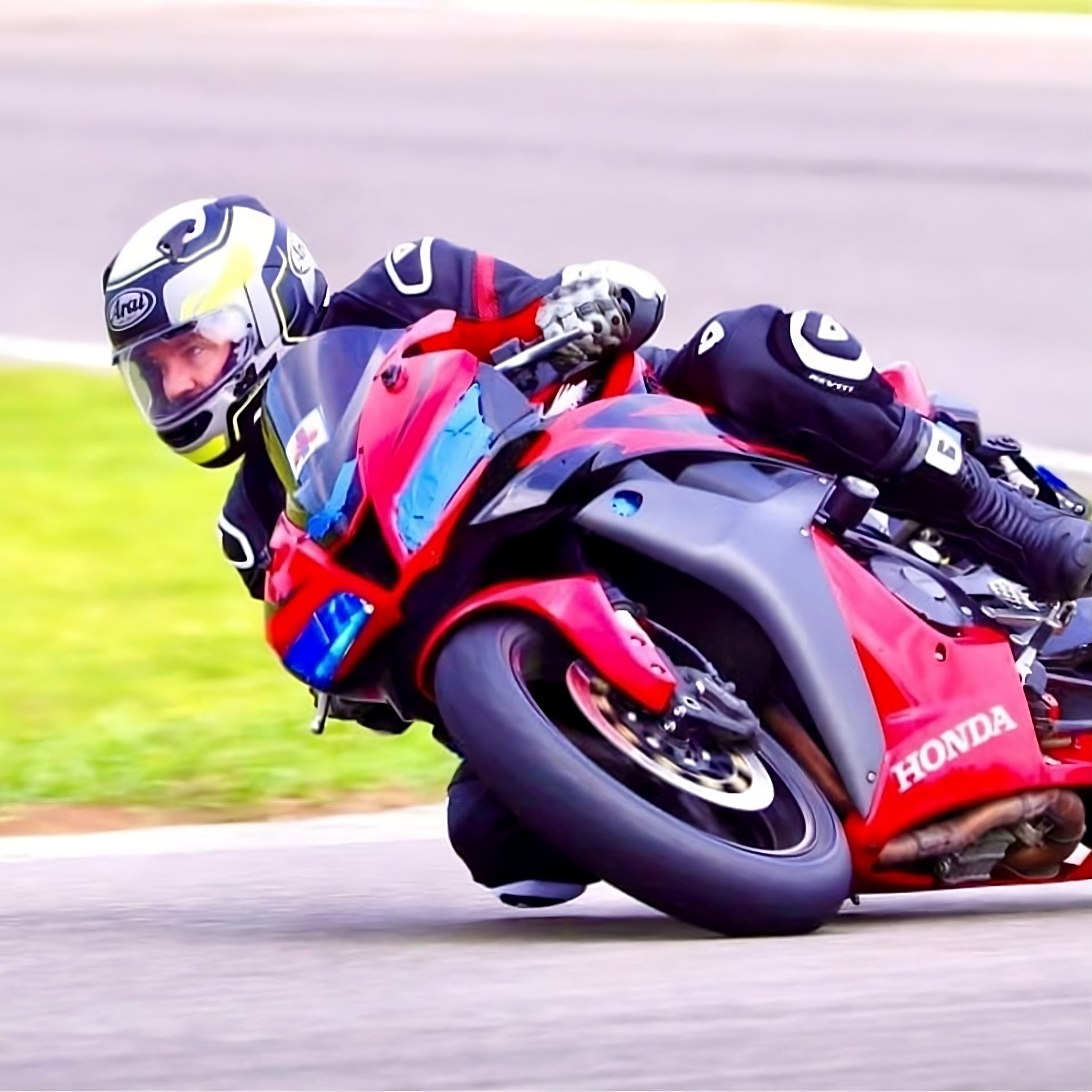
Our guest host for the next few episodes is Mr. Neil Sullivan. Maybe one of these days we'll be able to spell Neli Niel Neil correctly the first time around but we've known and ridden with Neil for many years over several thousand happy miles. Neil is all about the zen, bliss and flow of riding motorcycles.
As you can tell in his first few sentences, Niel Neil hails from the Chicahguh 'burbs, far from anything resembling a curvy road. With that, he cherishes the de-stressing, head-clearing effects of every throttle twist at various lean angles. Although his two wheeled journey began with some regrettable cruisers, Niel Neil's found his happy place right here with us on the sporty side of sport-touring.
You never really know what Neil is going to be riding but it seems like the smaller and cheaper the bike, the faster he goes. He's a big believer in regular training and track days to stay sharp, especially as a denizen of the Illinois prairies. Join us in raising an after-ride measure of fine Kentucky Bourbon to welcome to the show our good friend Neil Sullivan.
Did We Miss Sump'm?
Sixty percent of the time, we're right every time. What would you add to the conversation and why? Your input is invited. Leave a comment and/or write an article!
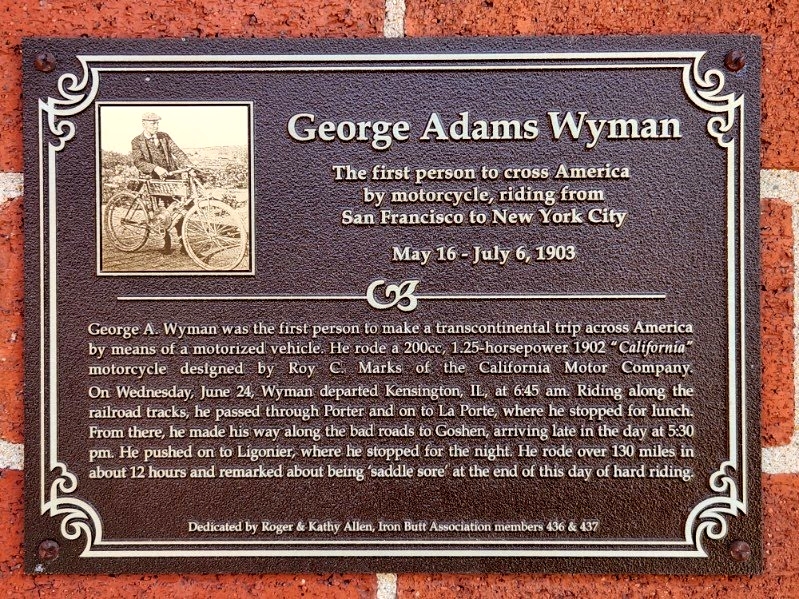
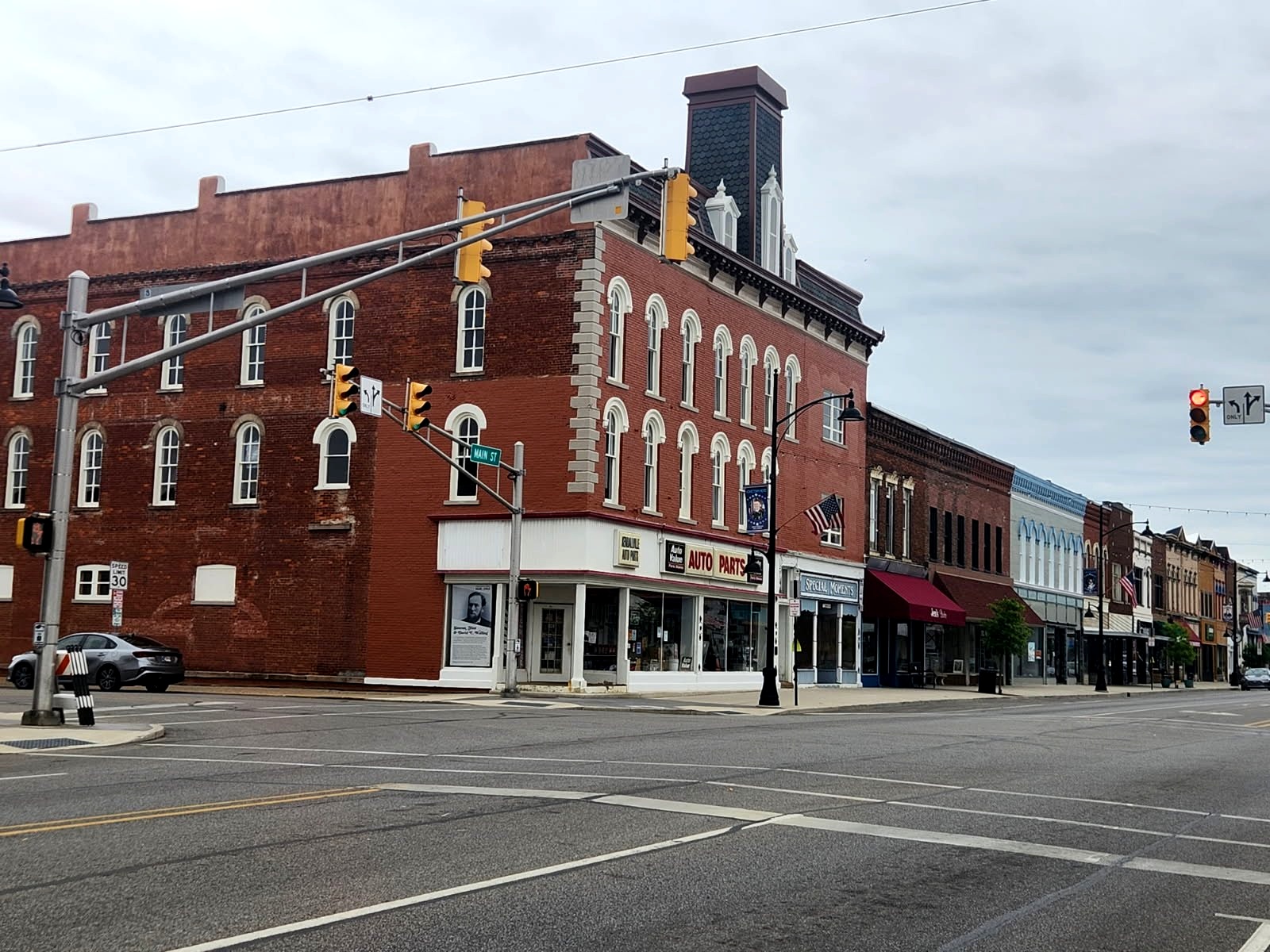
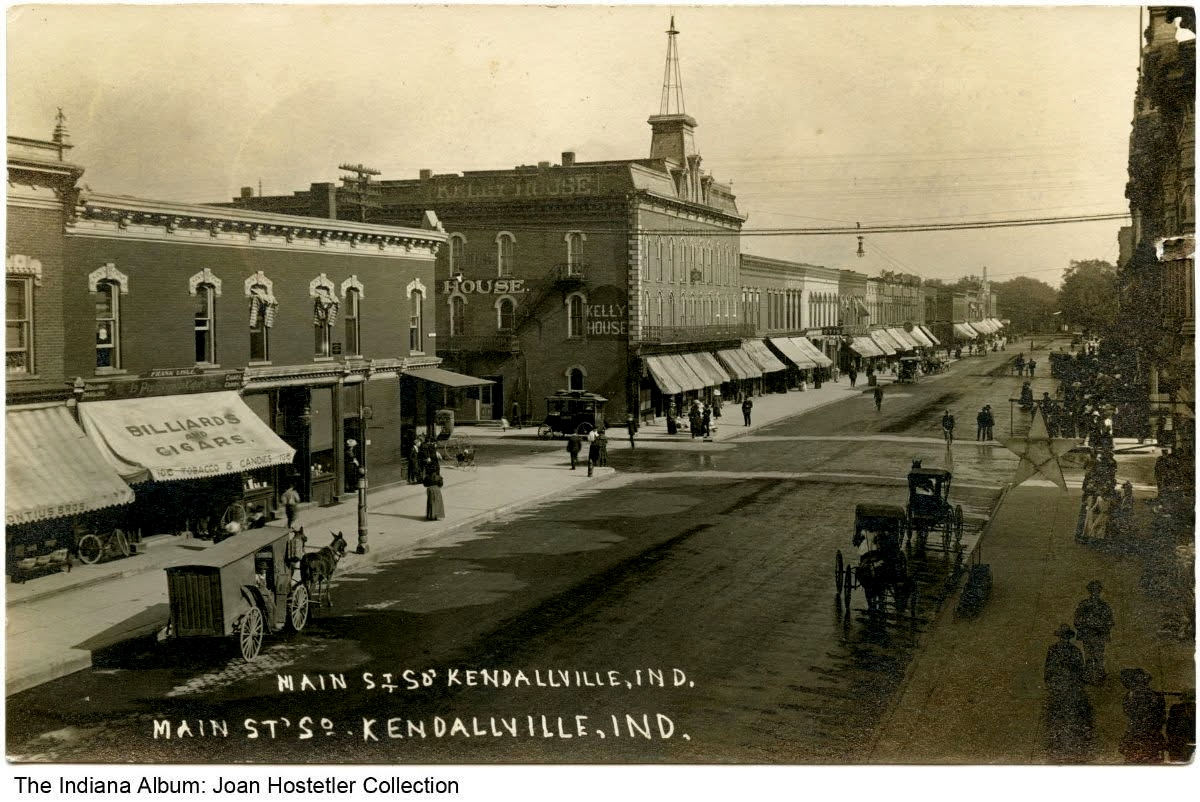
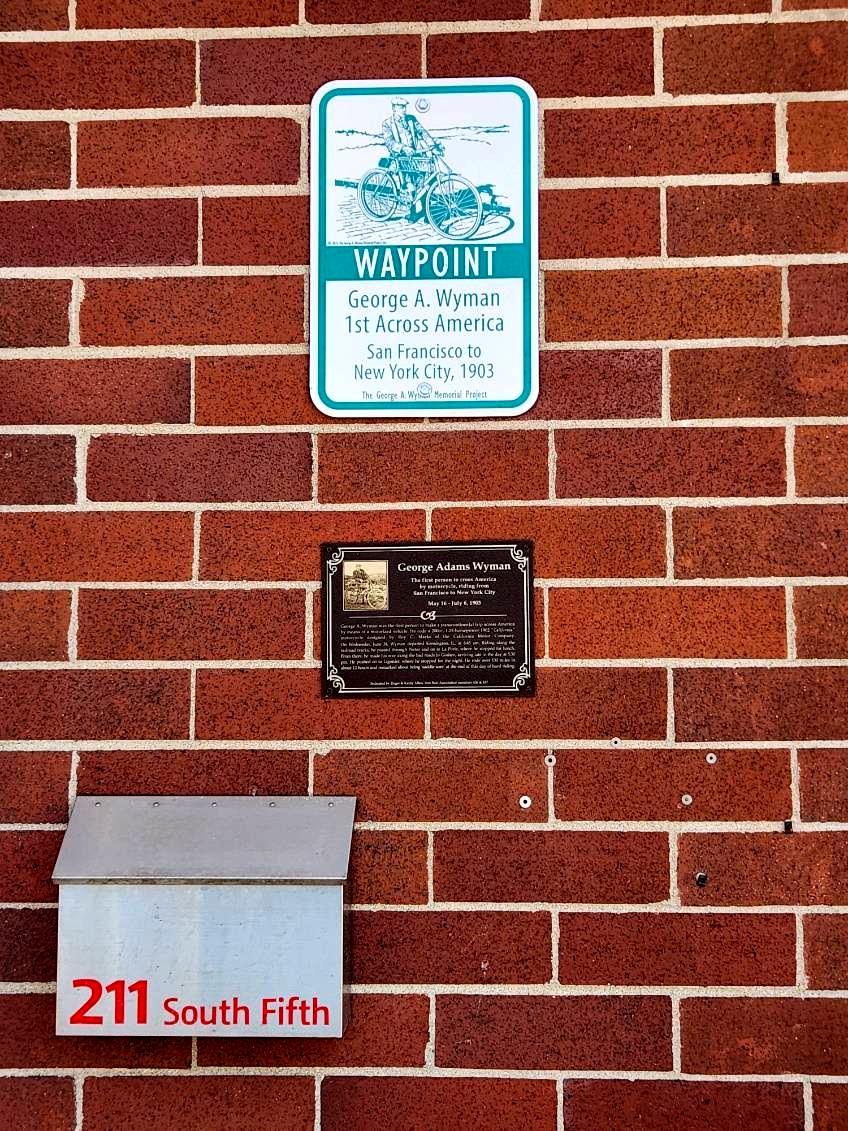
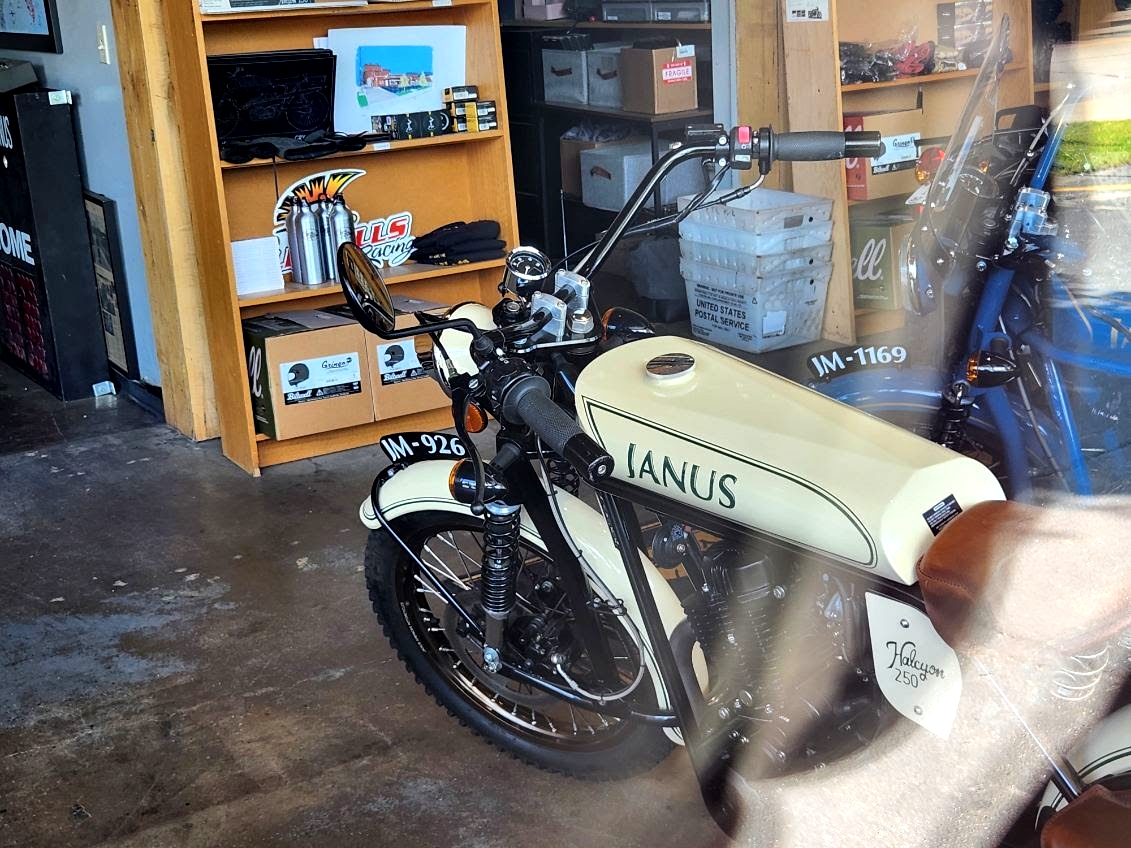
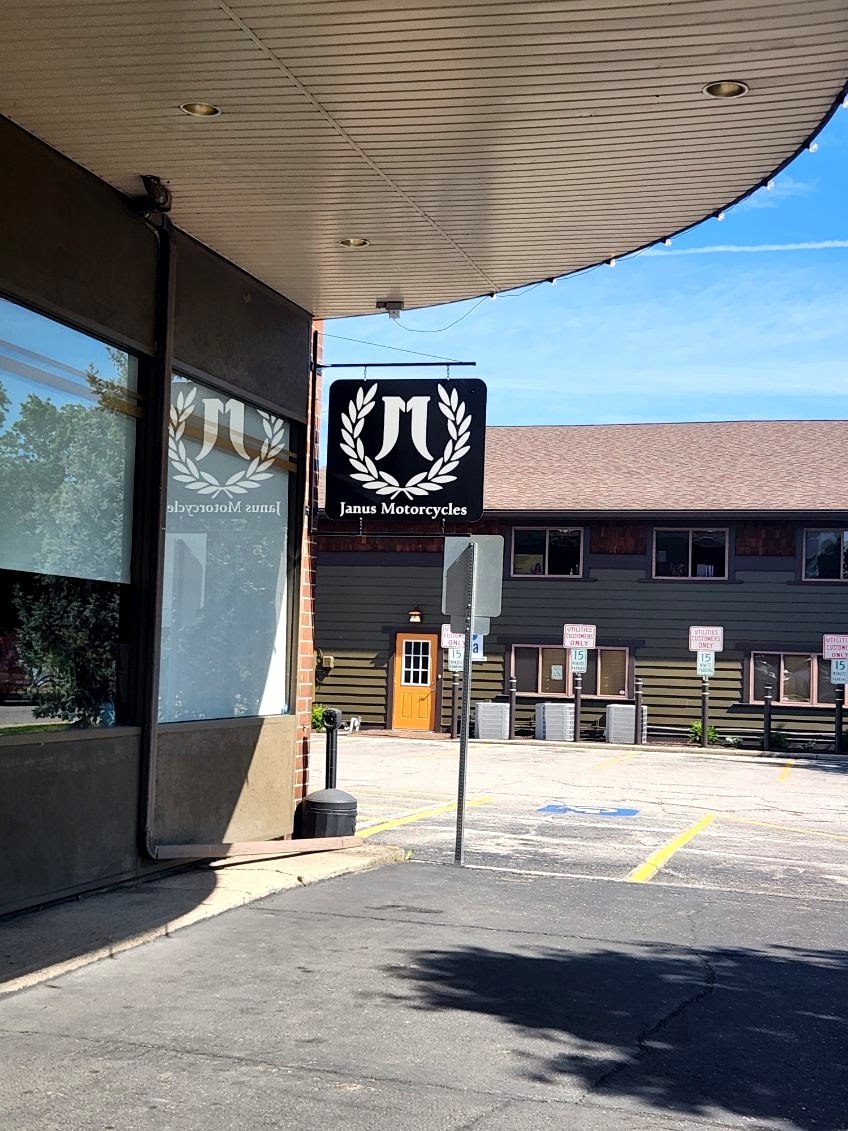
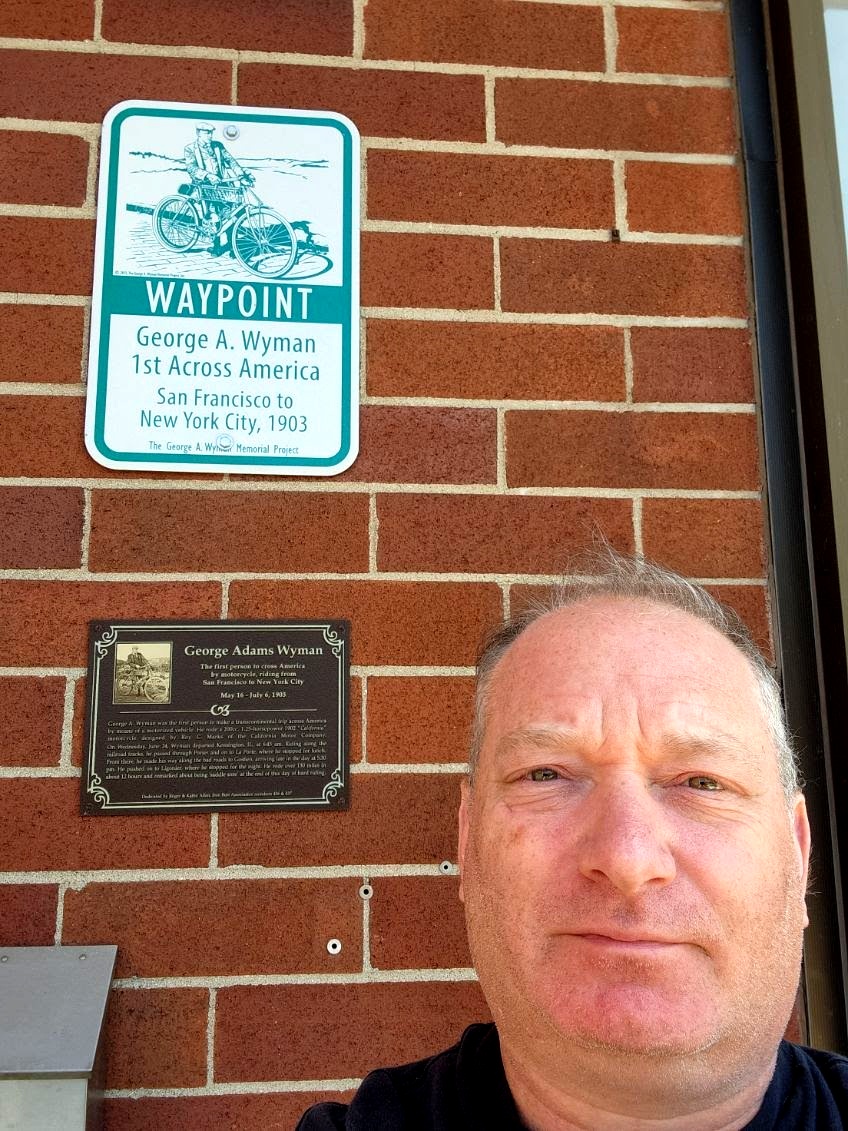
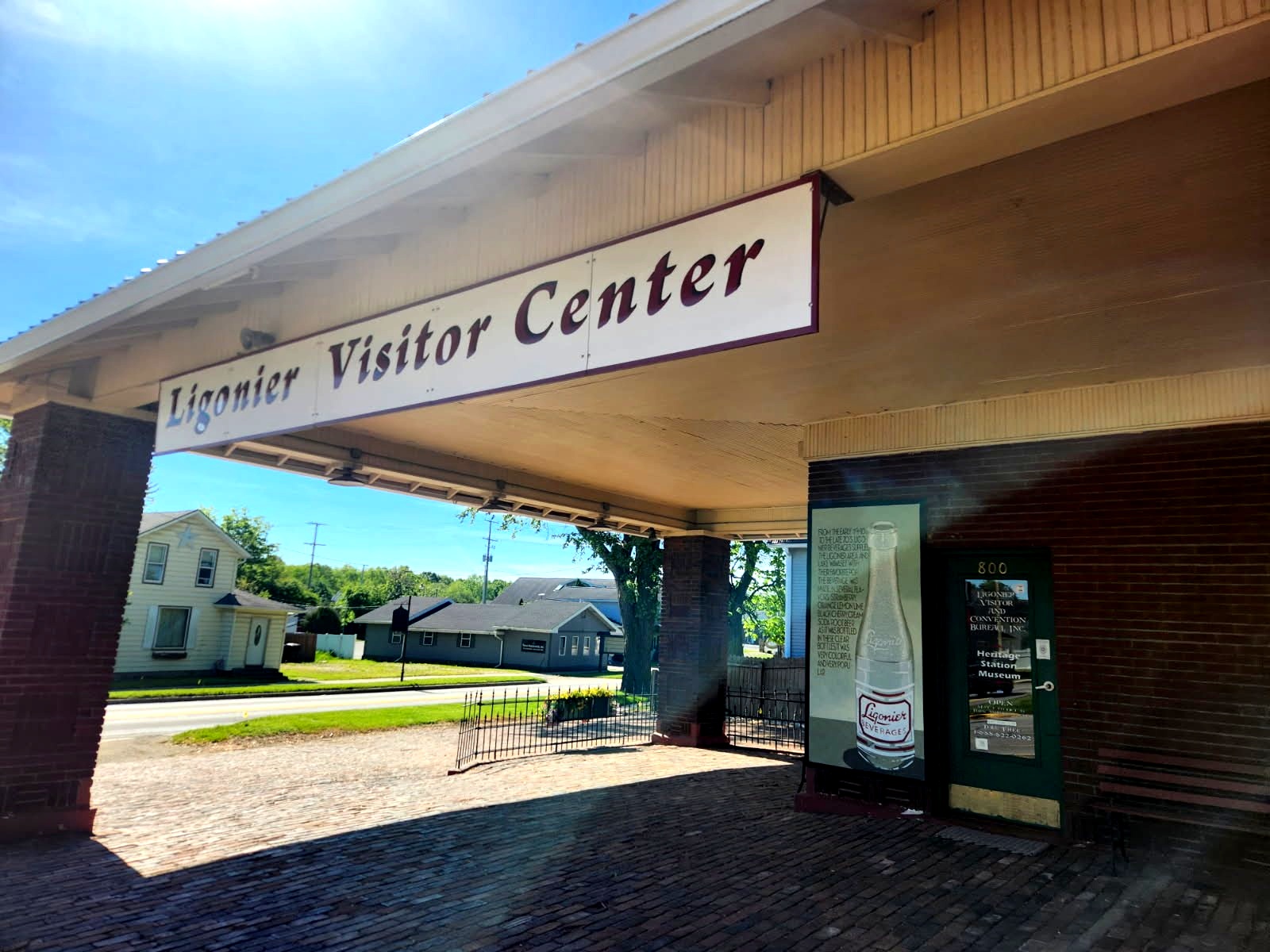
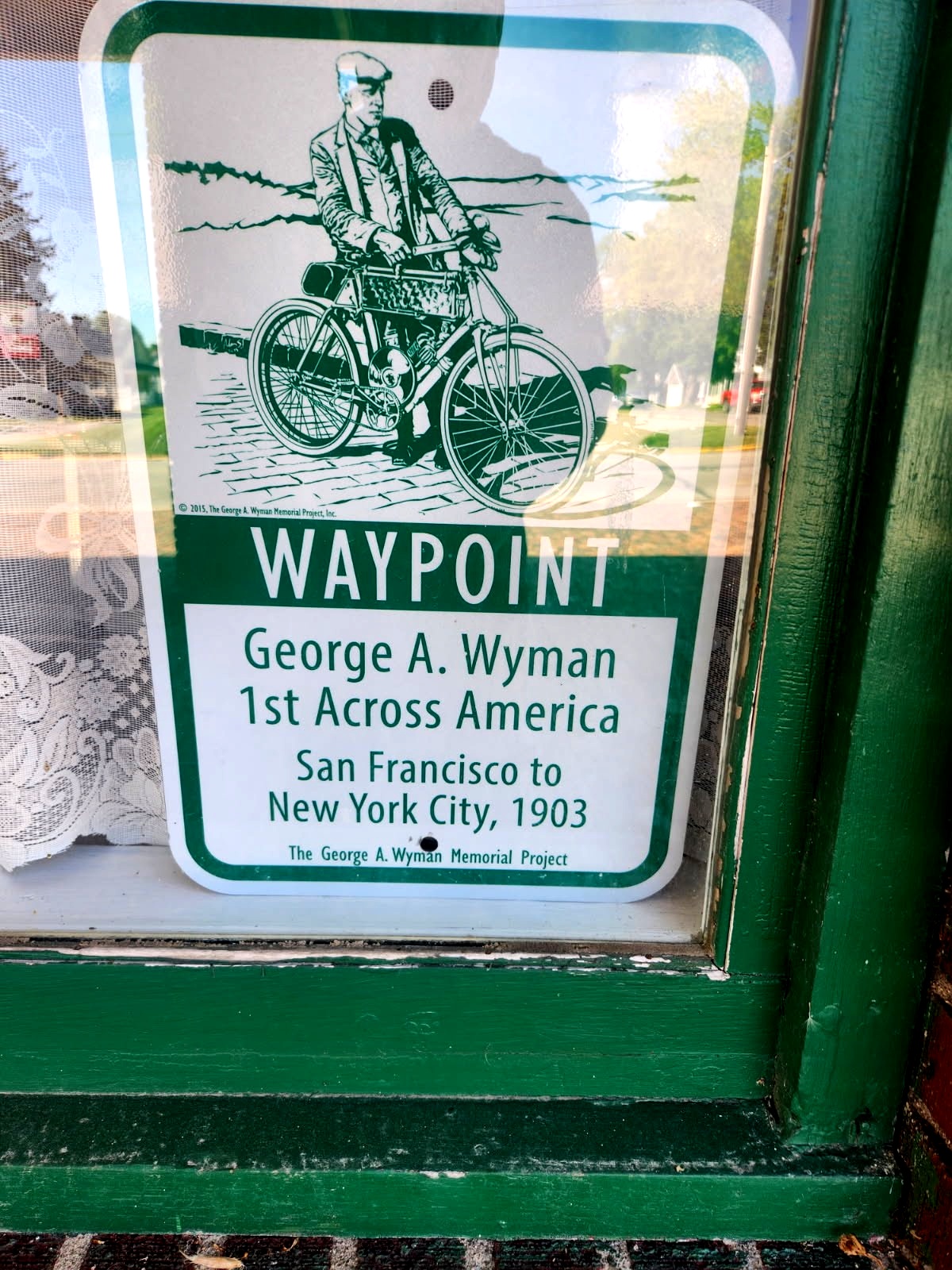

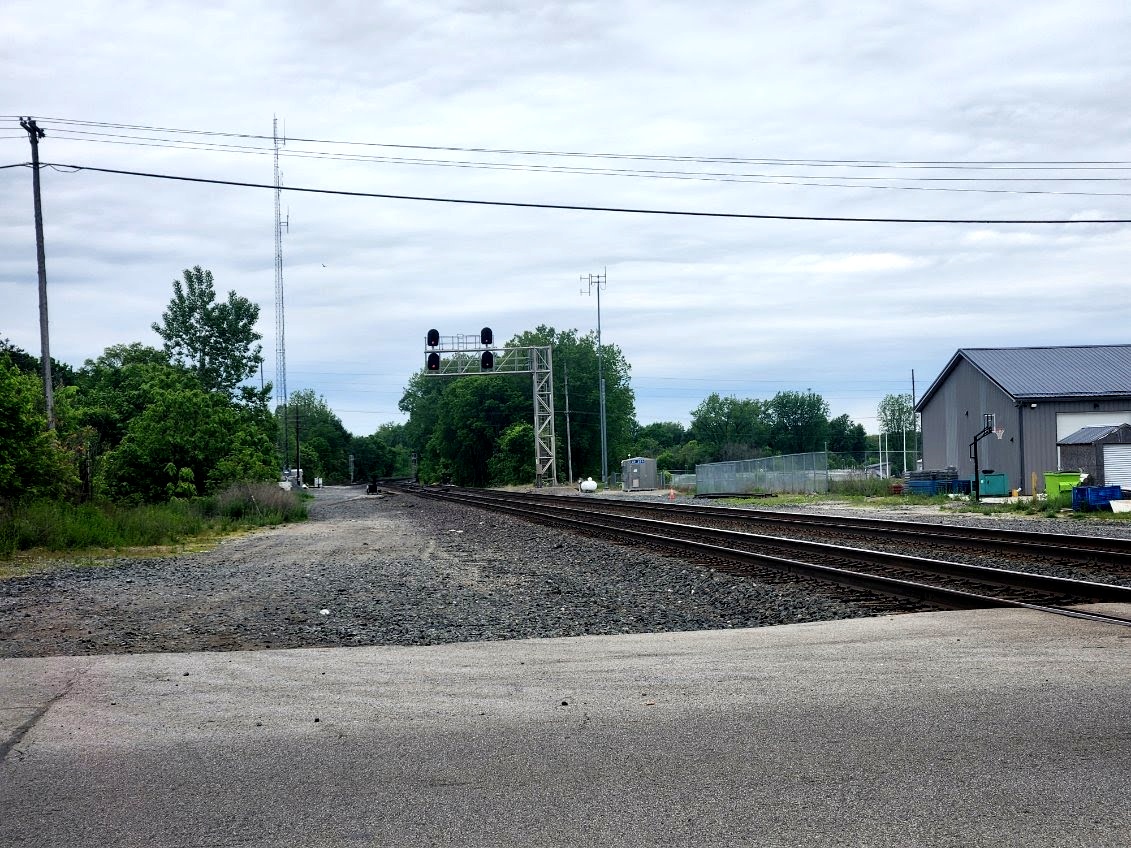
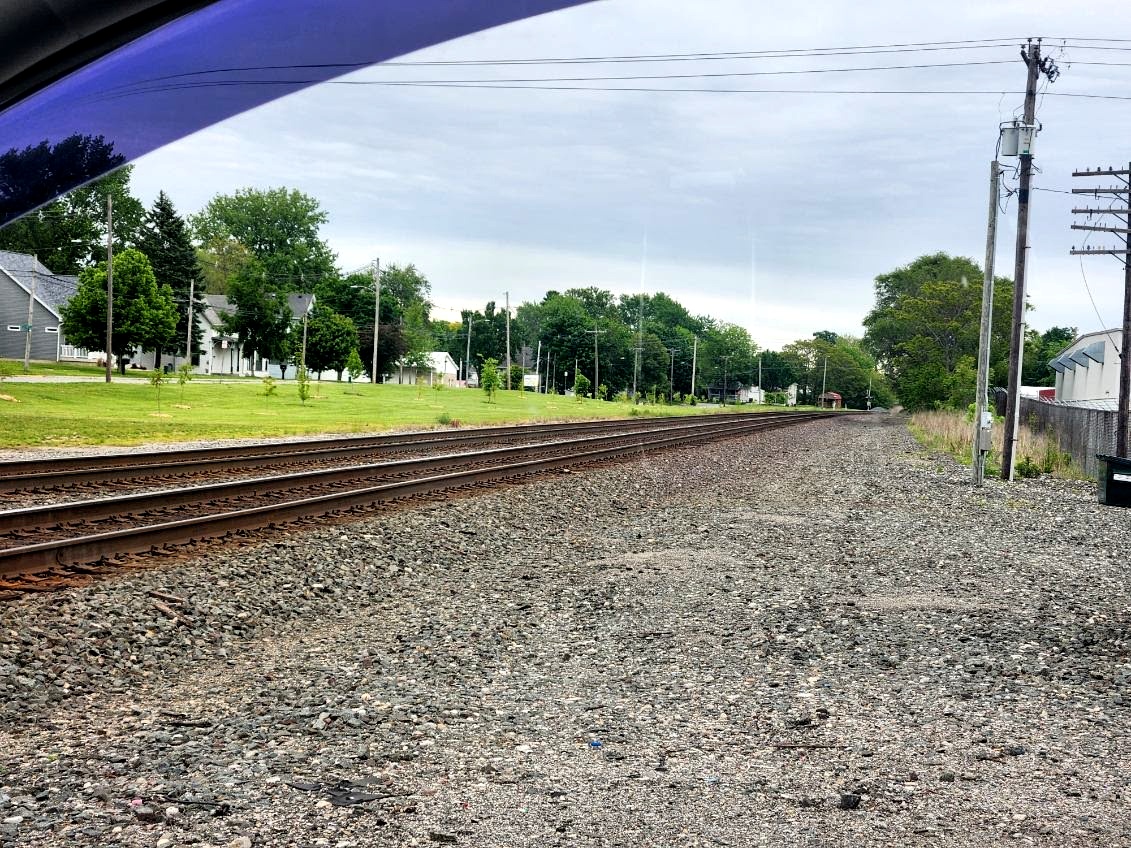

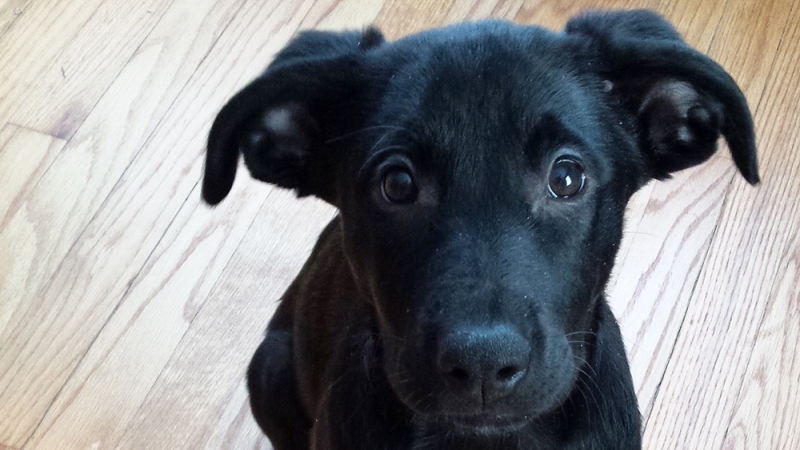

Thoughts gone wild? Write an article!